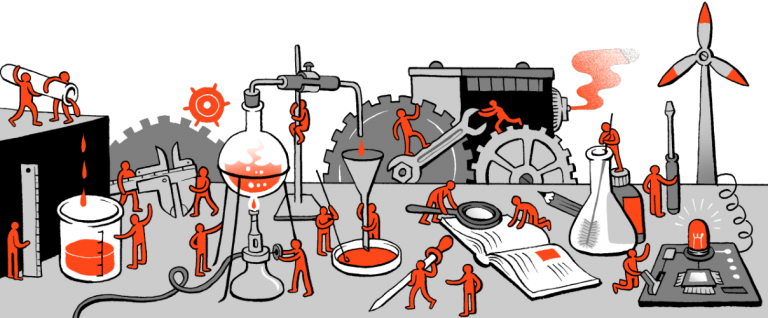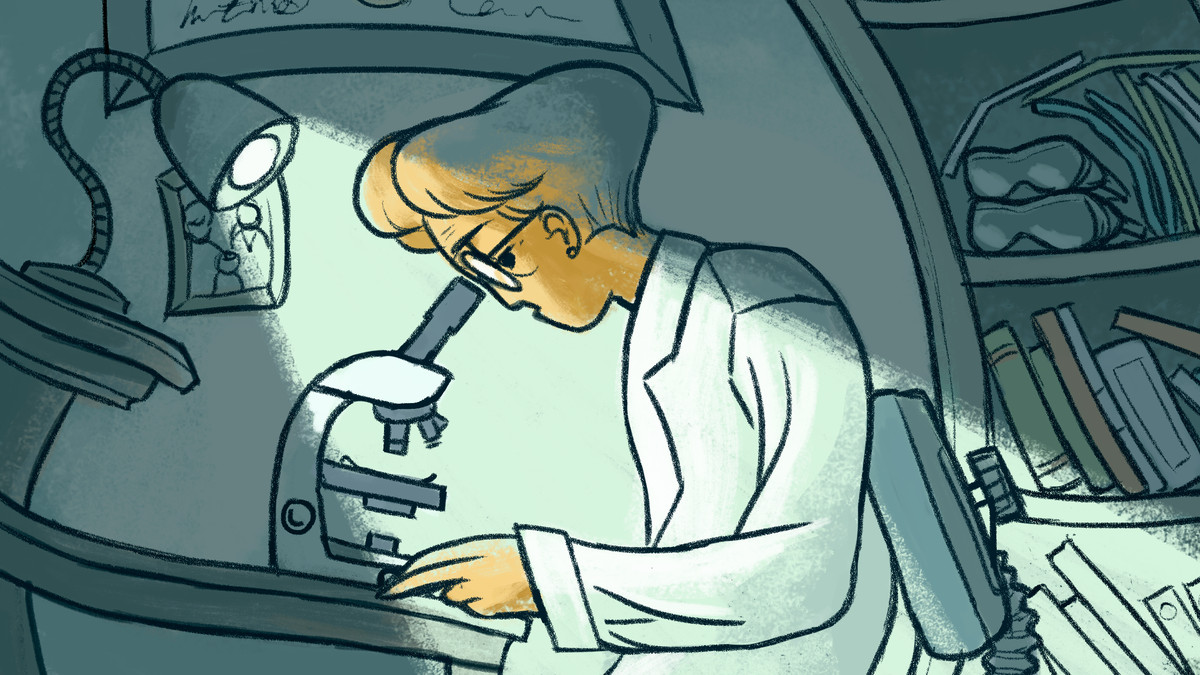
The analysis of the history of modernity in the aftermath of industrial, scientific, and technological developments suggests that modernity has been at the center of destroying the natural order of the universe including human and non-human beings
By Sohail Ahmed
The advancement of technology and modernity has undoubtedly brought significant changes in human lives by benefiting and improving their lifestyles and quality of life throughout the world. However, it is also important to recognize that technological advancements have also placed the well-being of millions of people at risk as well as have brought about degradation of the nature and climate. In that respect, technological power and development have remained aloof on ethical dilemmas.
The analysis of the history of modernity in the aftermath of industrial, scientific, and technological developments suggests that modernity has been at the center of destroying the natural order of the universe including human and non-human beings. There are many instances in which humans have created the power of industry and technologies which were later put into practice in the interest of powerful imperial, colonial states, and dominant capitalist groups by severely putting nature, environment, and living beings at risk. In other words, the powerful imperial powers’ pursuit of power and dominance over nature have remained aligned with it. The catastrophic destruction because of the developments and use of nuclear war and military technology coupled with modernist security state agendas of imperial and colonial powers during World War II is one of the most prominent examples of the destructive misuse and ethical dilemmas of science and technology.

Humans created the power of industry and technologies which were later put into practice in the interest of powerful imperial, colonial states, and dominant capitalist groups
The first atomic bombing in Hiroshima and Nagasaki caused immense damage massive mortality, unprecedented morbidity, and long-lasting environmental crisis. Similarly, during the Nazi regime, the use of gas chambers illustrates another example of the historical evidence of imperial modernity’s heinous acts perpetrated against the ‘racially impure’ human beings declared by Adolf Hitler. The gas chambers were purposefully engineered to eradicate population groups which mainly included the non-Christian and non-German ‘racially impure others’ for the Nazi imperial regime. The gas chambers in concentration camps served as a pivotal component in the genocidal operations carried out by the Nazis. The racial national Nazi state exemplifies the extreme dehumanization and destruction using advanced military technology. The atrocities committed during World War II especially the unethical medical experiments performed by Nazi doctors on prisoners in concentration camps led to the creation of Nuremberg Code which is consisted of a set of ethical principles and rules for conducting human subjects’ medical research. The development of Nuremberg Code became the foundation for the field of medical and research ethics.
A multinational food and beverage company promoted its baby milk formula and discouraged breastfeeding practices in developing countries
The ethical dilemmas pertaining to the advancements of science and technology extend to various sectors including food production. For that matter, the controversy of the Nestlé baby formula is a case in point that reveals the misuse of advancement in industrial food technology and its impacts on vulnerable populations due to the lack of monitoring and surveillance mechanism to ensure the quality controls and safety of life as well as the way industrial food technology produces capitalist consumer food culture. As part of the problem, back in the 1970s and 1980s, Nestle, a multinational food and beverage company, allegedly promoted its baby formula and discouraged breastfeeding practices in developing countries. This baby formula left numerous negative health outcomes due to poor water quality and lack of education. It highlights the profit-driven marketing strategies of new technology (baby formula) and their harmful consequences among vulnerable populations.
 In the same vein, ethical dilemmas are concerned with medical technology research. In this regard, the most important case to mention is the Tuskegee Syphilis Study which was conducted in the United States in the period from 1932 to 1972. It is widely understood that the experiment conducted in the Tuskegee Syphilis study had engendered controversy due to its unethical side. The research initiative conducted by the United States Public Health Service and the Tuskegee Institute aimed to investigate the transmission patterns of untreated syphilis within a cohort of African American males residing in Macon County, Alabama. And both medical research institutes were accountable for conducting the investigation. Part of the ethical problem was that the volunteers were convinced to hold the belief that they would be provided with complimentary medical care, yet contrary to expectations, they were not administered treatment for syphilis, despite the availability of efficacious drugs.
In the same vein, ethical dilemmas are concerned with medical technology research. In this regard, the most important case to mention is the Tuskegee Syphilis Study which was conducted in the United States in the period from 1932 to 1972. It is widely understood that the experiment conducted in the Tuskegee Syphilis study had engendered controversy due to its unethical side. The research initiative conducted by the United States Public Health Service and the Tuskegee Institute aimed to investigate the transmission patterns of untreated syphilis within a cohort of African American males residing in Macon County, Alabama. And both medical research institutes were accountable for conducting the investigation. Part of the ethical problem was that the volunteers were convinced to hold the belief that they would be provided with complimentary medical care, yet contrary to expectations, they were not administered treatment for syphilis, despite the availability of efficacious drugs.
 Ethical problems continue to develop because of the unethical practices, misconduct, and manipulation of biotechnology, biomedical engineering, and the pharmaceutical industry
Ethical problems continue to develop because of the unethical practices, misconduct, and manipulation of biotechnology, biomedical engineering, and the pharmaceutical industry
The study’s unethical nature and infringement upon the participants’ rights elicited both indignation and criticism. As a result, the significance of ethical standards in medical research was illuminated and it prompted a call for action for substantial modifications in research practices. Eventually, the biomedical ethical practice-based criticism eventually culminated in the establishment of contemporary research ethics standards. Moreover, the unethical practices associated with technological growth called for the teaching of humanities education such as philosophy, ethics, bioethics, religion, anthropology, law, and human rights to put into practice the models of ethically responsible education to evaluate inhuman acts and malpractices of technology. The ethically responsible education model stressed the critical inquiry of science and technological developments. In the 1960s, in response to developments in medicine and technology research that raised ethical considerations a new interdisciplinary field of inquiry came into being under the rubric of bioethics. It is generally agreed that Van Rensselaer Potter was the first person to use the concept of bioethics and it alluded to the intersection of biology, medicine, science, and ethics. Since then, the field of bioethics is continually expanding in response to the appearance of new ethical dilemmas brought about by developments in science and medicine. On the one hand, achievements in the reduction of human suffering and the preservation of human life have occurred in a variety of different ways thanks to advances in biotechnology and biomedical engineering. On the other hand ethical problems continue to develop because of the unethical practices, misconduct, and manipulation of biotechnology, biomedical engineering, and the pharmaceutical industry.
 Most of the healthcare institutes in Khairpur Mirs did not practically follow these ethical principles
Most of the healthcare institutes in Khairpur Mirs did not practically follow these ethical principles
In 1962, Pakistan Medical and Dental Council (PMDC) was established as a regulatory authority for medical and dental education and practice in Pakistan. The aim of PMDC is to ensure the standardization and quality of medical and dental education, as well as to regulate the ethics and professional conduct of healthcare practitioners in the country. However, during my M.Phil. Ethnographic field study in Khairpur district Sindh conducted within the subfield of medical anthropology on the issue of overuse of antibiotics and its ethical dilemma, I observed that most of the healthcare institutes in Khairpur Mirs did not practically follow these ethical principles. In the case of advancements in biomedical technology which serve the interest of medical practitioners and healthcare management professionals, the general clinical health-induced model holds the view that antibiotics are the magic bullets for the cure of humans and non-humans from infectious diseases. In this generally persisted clinical health view, memory related to healthcare falls short of the deaths of millions of people across the globe due to misuse and overuse of antibiotics and antimicrobial resistance due to unethical medical training and practice.
Medical representatives offer deals to doctors and medical stores based on medicine prescriptions and sales
This is to point out that Pakistan is ranked third among countries with lower and middle incomes to have medical malpractice in terms of excessive use (misuse) of antibiotics. During my ethnographic field study, I also observed that the market-driven causes and irresponsible attitudes and misconduct held by clinical practitioners and district health officials severely contribute to the over-prescription and excessive use of antibiotics. In my ethnographic field study, one of my respondents who worked as a medical representative in a pharmaceutical company stated that “We offer deals to doctors and medical stores based on medicine prescriptions and sales. They get a certain percentage of the amount as a commission from the number of sales of the medicines”. This means that the business of the pharmaceutical industry and the clinical healthcare practitioners and medical stores run on the rule of dependency theory.
Pakistan ranks third among countries with lower and middle incomes to have medical malpractice in terms of excessive use (misuse) of antibiotics
Another respondent of my study, a medical store owner, shared that most of the medical stores or pharmacies in the local area of Khairpur Mir’s are not registered officially meaning they don’t have authentic and mandatory degrees, certificates, and licenses. And it came about that the pharmacists working over there also do not have a degree of D. pharmacy or another related degree. He explained that “The pharmacists who are illegally running their businesses have to pay some amount monthly to the officials of drug regulatory authority as a bribe.” This highlights the unethical conduct exhibited by health authorities and pharmacists that ultimately have adverse consequences for the general population, especially the poor social strata of society. It is the poverty-stricken people who face the long-term effects of the side effects of antibiotics and the third-rate quality of pharmaceuticals.
The medical stores or pharmacies in the local area of Khairpur Mir’s are not registered officially meaning they don’t have authentic and mandatory degrees, certificates, and licenses
In the pre-antibiotic era, when antibiotics were not invented, people were constantly at risk of dying from contagious illnesses. Antibiotics were developed as a treatment option for illnesses caused by microorganisms. On the other hand, those who thought of it as a panacea started taking excessive amounts of it to treat conditions or diseases for which antibiotics are useless. In other words, the unnecessary use of antibiotics, which is the major cause of the development of antimicrobial resistance among the population, is one of the most worrisome challenges in healthcare across the world. Since I examine the ethical dilemma of medical practice, during anthropological field study I also observed that most of the students of medical education lacked comprehension of medical ethics. According to some estimates, there are 600,000 quacks in Sindh, but hospitals will not be closed by healthcare organizations. During my study observations in the field, I came across representatives of pharmaceutical firms selling pharmaceuticals without doing quality checks. What matters to them was the high sales of medicines to be prescribed by their client doctors in the private clinics. These medical sales were to be waiting for over- prescription and overconsumption of poor patients.
 According to some estimates, there are 600,000 quacks in Sindh
According to some estimates, there are 600,000 quacks in Sindh
The incorporation of bioethical issues into decision-making processes at the level of both the individual clinicians and the regulatory, governing institutions of the state needs special attention to protect the spirit of the well-being of humans and the larger moral cause of humanization. It is necessary to keep an eye and check on irregular and illegal healthcare procedures, policies, and practices that are motivated by financial gains. The field of bioethics along with medical ethics needs support to be developed within the healthcare system as well as medical education in medical universities. The ethical principles of bioethics education upheld the values of benevolence and well-being of patients and could only serve the moral cause of healthcare. It has the ability to pose a challenge to the market-driven capitalist models of healthcare.
_____________
Sohail Ahmed is M.Phil. Student at the Department of Anthropology, Quaid-e-Azam University Islamabad. He is working in the medical anthropology research domain by paying attention to the perspectives of bioethics, medical ethics, and the issue of overuse and misuse of antibiotics and the ethical dilemmas of medical practice in Sindh, Pakistan.
[…] Read: Ethical inquiry of scientific and technological development […]